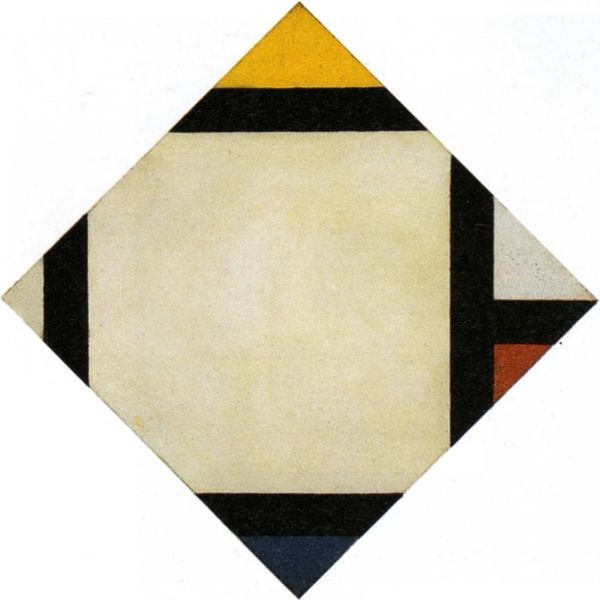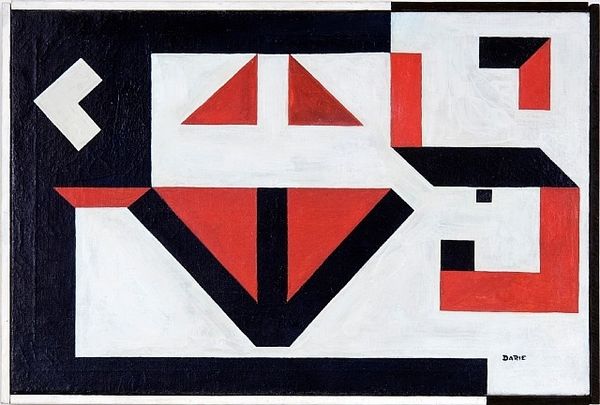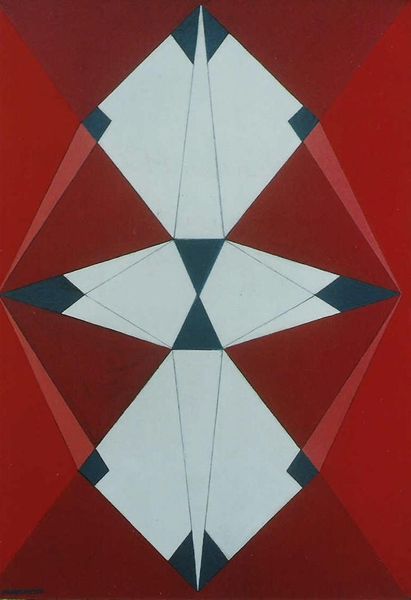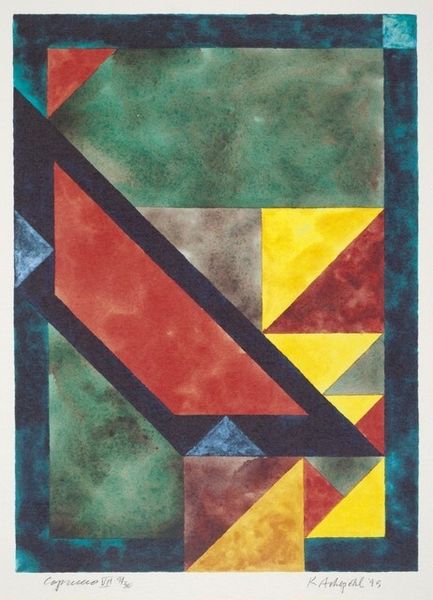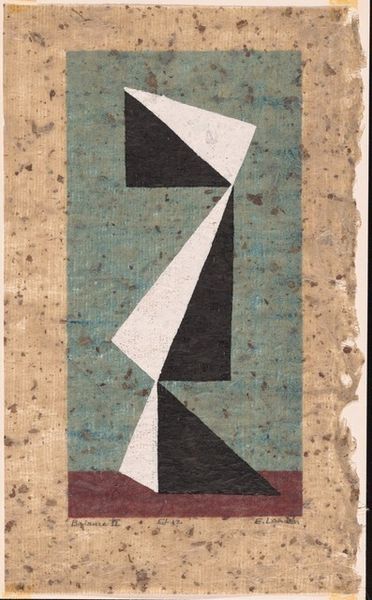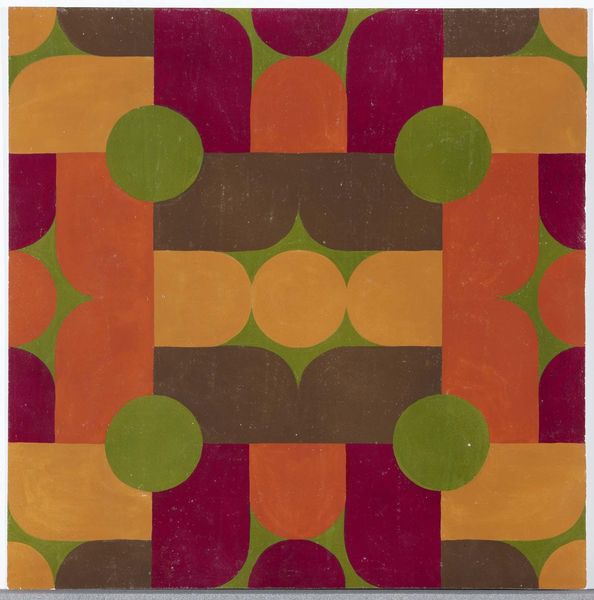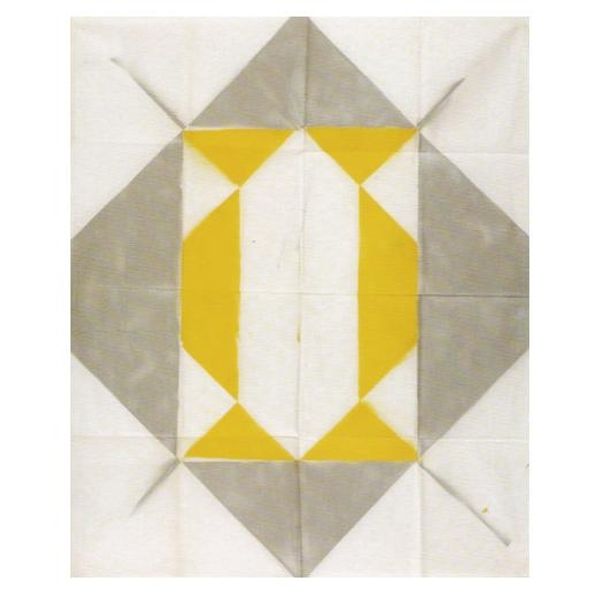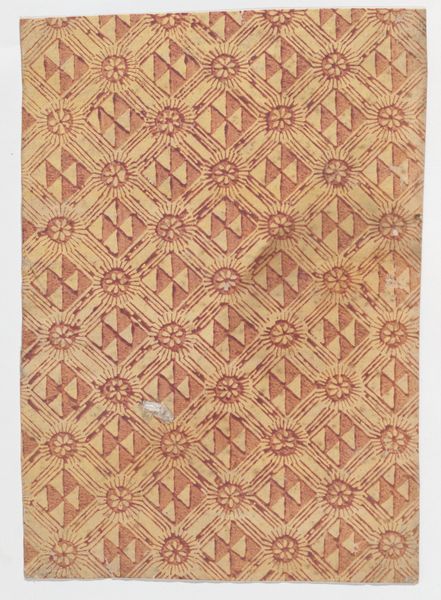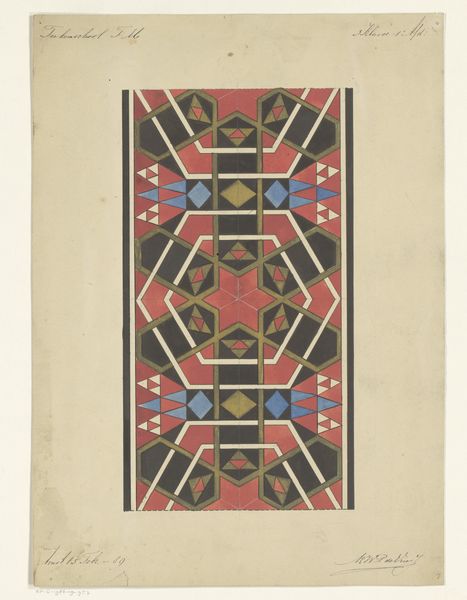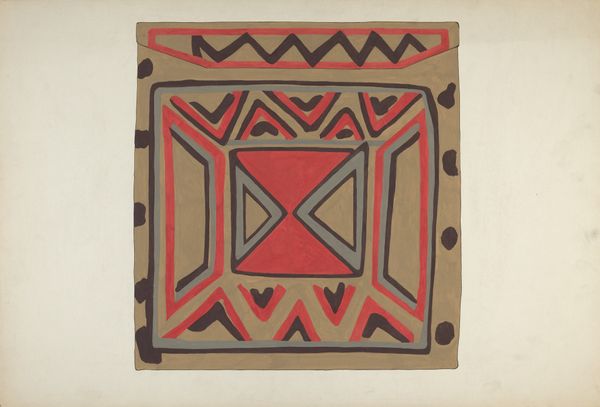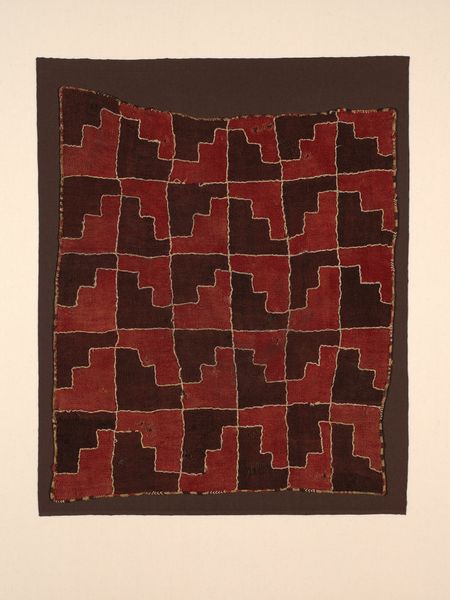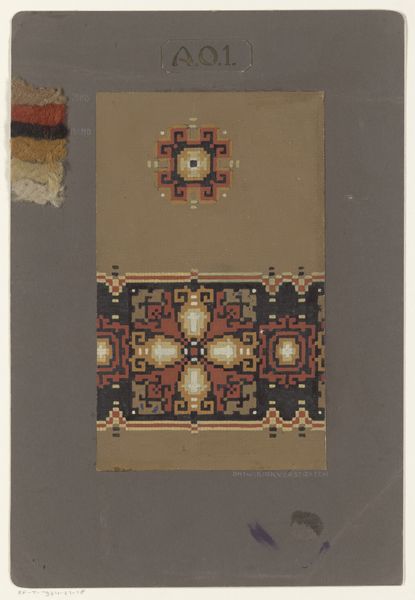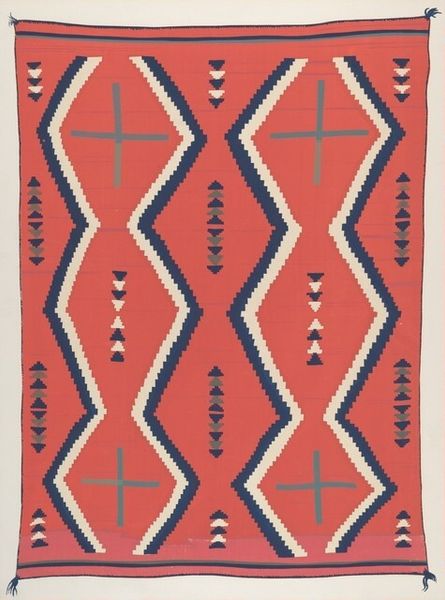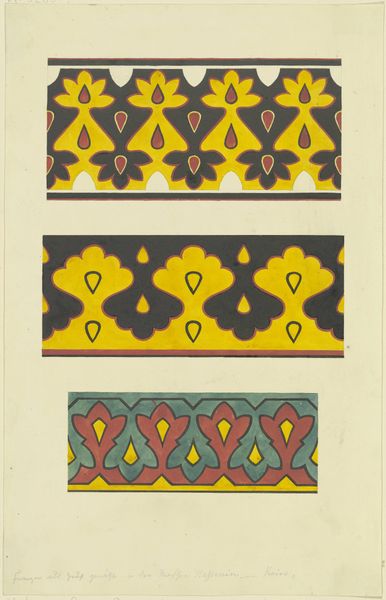
drawing, paper
#
drawing
#
vienna-secession
#
paper
#
abstract
#
geometric pattern
#
tile art
#
geometric
#
abstraction
Copyright: Public Domain: Artvee
Editor: Here we have Egon Schiele’s "Geometrische Studie" from 1903, a drawing on paper. It feels both rigid and somehow playful to me, all those triangles! What do you see in this piece? Curator: I see a young artist grappling with the legacies of the Vienna Secession and the burgeoning move toward abstraction, trying to create something new. But perhaps what’s more fascinating is what these geometrical forms *could* represent. Given Schiele's later works, filled with explorations of the body and anxieties around sexuality, one might consider whether this geometric study is not merely about form, but a coded landscape of desire, constraint, and perhaps even the restrictive social geometries imposed on bodies, especially women's bodies, in early 20th century Vienna. What do you make of that? Editor: That's a pretty intense reading! I hadn’t thought of it that way, more like exercises in form and color. Curator: Absolutely, it could very well be! But isn't it interesting how even the seemingly "pure" exercises can carry cultural weight? Consider the politics inherent in embracing abstraction itself, moving away from academic tradition towards a potentially more democratic and universal visual language. In a moment of increasing nationalism and empire-building, abstraction becomes its own kind of commentary. Editor: I guess I was missing the forest for the trees! It’s interesting how art can be more than meets the eye on the surface. Curator: Exactly! Context transforms perception. And hopefully, our dialogue might spur others to see beyond the surface as well!
Comments
No comments
Be the first to comment and join the conversation on the ultimate creative platform.
